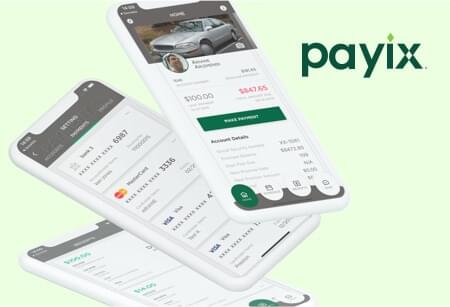App Development
The Benefits of Cloud Application Development Services
What makes a cloud-based app different from a traditional app is the leverage of cloud technologies. Cloud apps utilize the Internet to deliver services and resources, such as data storage, databases, and servers. Cloud-based apps can use cloud technology in varying degrees. For example, your app might only use the cloud for data storage.
Cloud services offer businesses several benefits, which is why so many are choosing cloud app development. The key benefits of cloud-based apps are:

Cost Savings
Cloud development helps businesses save money in two critical ways: resources and development. Cloud services leverage distributed computing resources, which means your business will not have to maintain on-premises servers, databases, and other necessary IT infrastructure. Most cloud solutions only charge you for the resources you use. A traditional computing approach cannot match the cost-efficiency associated with cloud-based services.
Cloud technologies can also reduce the time it takes to develop an application. While the cost of each cloud application development project will vary based on the product being developed, shorter, more efficient development cycles lead to lower overall development costs.

Improved Performance
Fast, reliable app performance is a significant part of a great User Experience. At Koombea, we focus on creating a powerful UX because apps that fail to deliver one are abandoned by users. One thing that cloud apps have no issues providing is fast, reliable performance.
A cloud app can provide fast and reliable performance because most of the computation tasks are handled on the server side. The more computations that can be run on the cloud, the more computing resources are available on the user’s device to deliver fast speeds and high-performance levels.

Scalability
Cloud solutions offer a high degree of scalability that traditional local IT solutions cannot match. Local, on-premise solutions are designed and built to manage a specific amount of commands and users. What happens if your app is really popular and user demand suddenly increases? If you have an on-premise solution, your business would have to invest in greater resources, which would cost a lot more money and take valuable time.
On the other hand, cloud services can be scaled as demand increases. So if your cloud app suddenly sees a spike in demand, you can quickly up-scale your resources to meet it. Cost savings and flexibility aside, the scalability cloud solutions offer give your business a chance to grow organically. At Koombea, we know how fast demand can change. Cloud app development ensures that your business can effectively meet it.

Reduced Risk and Increased Uptime
Cloud services employ multiple servers, redundancies, and copies of your app. Compared with traditional hosting models, cloud solutions significantly reduce the risk of lost data and application downtime. Of course, security concerns still need to be addressed in the cloud.
Still, cloud computing drastically reduces the risk of physical IT infrastructure failure and ensures increased uptime.
Our Cloud Development Services
The Koombea development team is experienced in building cloud applications. We’ve built cloud apps for companies in several different industries. Our team takes great pride in truly getting to know our customer partners, their business operations, goals, and target audience. We help your business determine which technologies are best suited for your project and demonstrate how to use cloud technologies to maximize your operations and efficiently meet your goals.
Cloud App Development
Do you have a great idea for an app? Koombea can help you build a cloud app with our experienced developers and designers. We have a proven UX/UI design process that takes a user-centric approach to deliver an unmatched UX experience that will truly delight and engage your users.
Our development team has worked on several different types of custom software development projects, and Koombea has been recognized as an industry leader in application development services. Our developers take the time to truly understand how your cloud app will fit into your business operations. This drives your cloud app development project and ensures that your cloud app meets your requirements and exceeds your expectations.
Cloud Integration
Does your business have multiple cloud environments that you would like to consolidate into one IT infrastructure? Many businesses work with more than one cloud provider. Our cloud integration services can help you turn your hybrid cloud solution into a cohesive cloud infrastructure. Managing multiple clouds can be confusing, and it can lead to data loss.
Koombea can help your business get its cloud solutions organized with cloud integration. We will help you choose the right cloud platform and infrastructure for your needs.
Cloud Migration
Do you have an existing application, server, or database that you want to move to the cloud? Koombea can help your business handle all of the complexities associated with cloud migration. There are several cloud platforms, but they might not all meet your needs in the same way.
Our team has years of experience working with top cloud platforms such as AWS, Google Cloud Platform, Microsoft Azure, and Oracle. Before you decide to migrate to the cloud, speak with a team of experts who can help you choose the right cloud platform for your business’s needs.
Cloud Infrastructure Management
Does your organization need help allocating and delivering cloud resources? Koombea can help your business strategically allocate and deliver cloud resources through our cloud infrastructure management services. Trying to manage cloud resources on your own can be complicated and time-consuming. Instead, trust a team of cloud experts to precisely manage your cloud services.
Our Work
Some of the Brands that Trust Us
About Koombea
We have been designing and developing world-class websites and apps since 2007. We are proud to have worked with some of the most innovative brands in the world, from early-stage startups to Fortune 500 companies. Our team has been recognized as an industry leader and top software development and design company.
If you want to discuss your cloud app development project with an experienced cloud app developer, schedule a free consultation with one of our experts. We would love to learn more about your project and walk you through our cloud app development process. We are also happy to elaborate on our cloud application development services and related cloud offerings.








